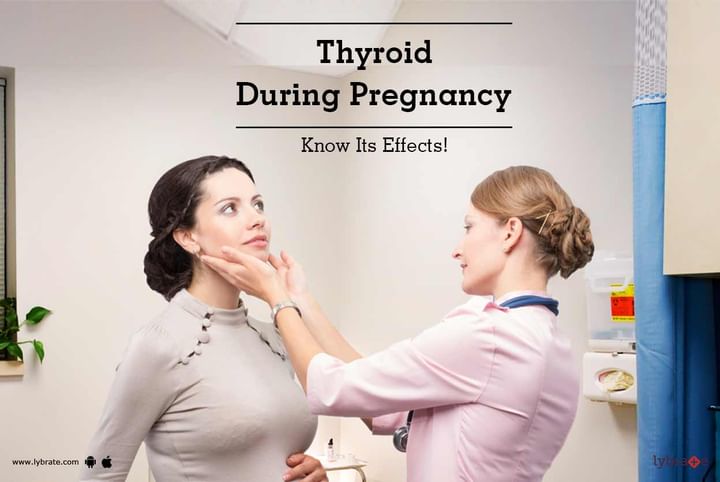Thyroid During Pregnancy - Know Its Effects!
The body has various chemicals called hormones which play a significant role in controlling various functions. Produced by organs that weigh as less as 0.5 g, these hormones control height to weight to reproduction to metabolism. It is not surprising that even little amount of variation in these hormones have a noticeable effect on the body’s functioning.
It is well acknowledged that pregnancy is a highly crucial, complicated, and anxious period of a woman’s life. The mother-to-be has the dual responsibility of taking care of her health in addition to ensuring the child within is protected and nurtured well to develop into a full-term baby. Pregnancy is controlled my many hormones and the thyroid also plays a significant role during this time. The connection between pregnancy and thyroid hormone is quite strong.
Women are more prone to develop hypothyroidism, and if diagnosed during pregnancy, extra care must be taken to ensure thyroid levels are maintained in the optimal range. Women with hypothyroidism who get pregnant can have multiple effects including the following
- Higher incidence of miscarriages: When a woman has multiple miscarriages in the first trimester, one of the reasons to rule out would be hypothyroidism. The incidence of second trimester miscarriage is also quite high in women with hypothyroidism. It is believed that thyroid controls the other female hormone levels and therefore optimal levels of T4 are essential for maintenance of pregnancy.
- Developmental defects and delays: The developing child requires its supply of hormones from the mother until it can start producing them on its own. This would take time and unless the mother is producing optimal amounts for herself, the child would not be receiving the required amounts of hormones. This means the child’s growth and development controlled by the hormones would be affected. Even after birth, there could be delays in terms of developmental milestones.
- Low birth weight: Underdevelopment of the child leads to low birth weight.
- Stillbirth: Women with hypothyroidism can also have a higher incidence of stillbirth.
- Hypertension and preeclampsia: The blood pressure could be significantly elevated and lead to complications in the later trimesters.
- Maternal emotional health: Lower levels of thyroid bring about fatigue, depression and mood swings in all women. Given the added state of pregnancy, it is not surprising there would be greater mood swings and bouts of depression and low self-esteem.
With prenatal care improving, comprehensive thyroid screening, especially in people with family history of thyroid problems, is being made mandatory. Talk to your doctor to ensure your thyroid functions are normal. This ensures thyroid levels are maintained for optimal growth of the newborn and the health of the mother is not jeopardised. If you wish to discuss about any specific problem, you can ask a free question.



+1.svg)
